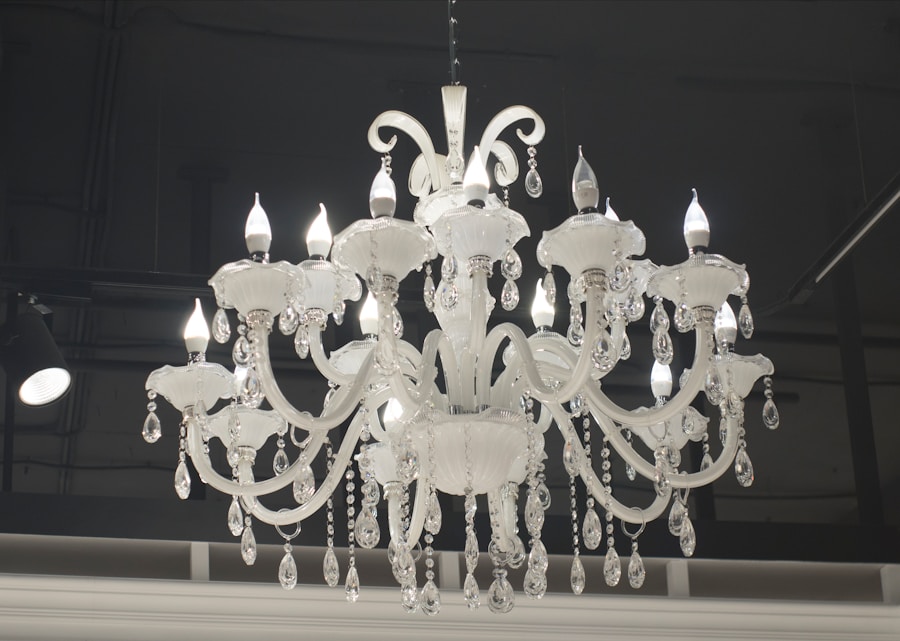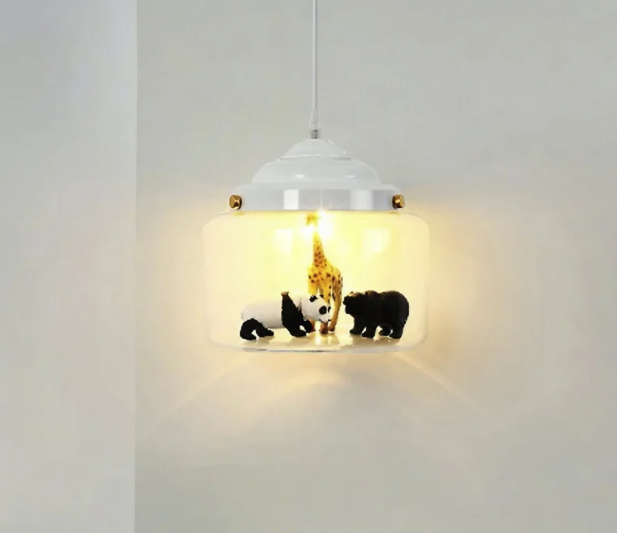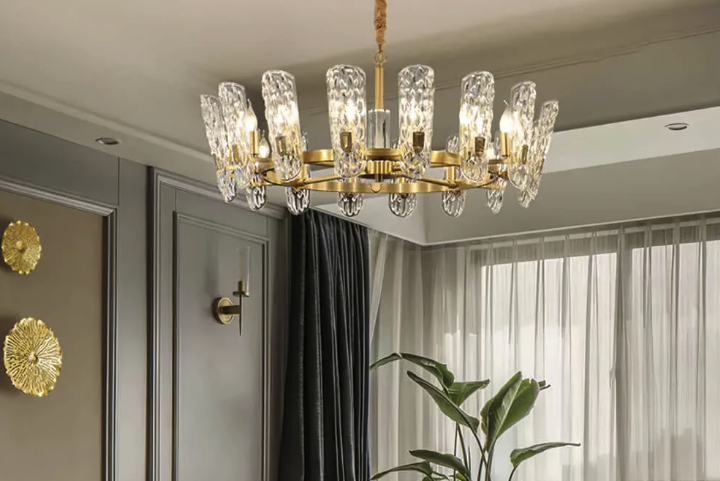Lighting is a critical element in shaping the atmosphere and functionality of any environment. It has the power to dramatically alter the appearance and ambiance of a room, making it imperative to carefully select appropriate lighting solutions for residential and commercial spaces. Effective lighting not only provides illumination but also enhances the overall aesthetic and mood of an area.
The right lighting Nus-design can create various atmospheres, from warm and welcoming to bright and invigorating, depending on the desired effect. Moreover, adequate lighting is essential for performing various tasks such as reading, cooking, or computer work. It can also be used to accentuate specific areas or objects, adding depth and visual interest to the space.
Recognizing the significance of lighting in any environment is fundamental to creating a well-illuminated and visually appealing setting. When considering lighting options, it is important to take into account both natural and artificial light sources. Natural light can significantly influence the overall ambiance of a room, providing a sense of spaciousness and connection to the outdoors.
However, artificial lighting is equally important, particularly during evening hours or in spaces with limited access to natural light. Achieving the right balance between natural and artificial lighting can result in a harmonious and well-balanced atmosphere. Beyond functionality, lighting also contributes to the aesthetic appeal of a space.
Lighting fixtures can serve as decorative elements, adding style and character to a room. There is a wide range of options available, from modern and minimalist designs to traditional and ornate fixtures, allowing individuals to select lighting that complements their decor and reflects their personal style.
Factors to Consider When Choosing the Right Lamp
Determining the Purpose of the Lamp
The first step is to identify the purpose of the lamp. Are you looking for task lighting to illuminate a specific area for reading or working, or do you need ambient lighting to create a warm and inviting atmosphere? Understanding the intended use of the lamp will help you determine the type and style that will best suit your needs.
Considering the Size and Style of the Lamp
Another important factor to consider is the size and scale of the lamp in relation to the space. A large, statement lamp may be suitable for a spacious living room, while a smaller, more understated lamp may be better suited for a bedside table or desk. The style and design of the lamp should also complement the existing decor of the room, whether you prefer contemporary, traditional, or eclectic styles.
Material, Finish, and Bulb Type
Additionally, consider the material and finish of the lamp to ensure that it coordinates with other elements in the room. The type of bulb used in the lamp is also crucial. LED bulbs are energy-efficient and long-lasting, while incandescent bulbs provide a warm and soft glow. The color temperature of the bulb can also impact the ambiance of the room, with warmer tones creating a cozy atmosphere and cooler tones providing a more refreshing feel.
Exploring Different Types of Lamps and Their Benefits
There are various types of lamps available, each with its own unique features and benefits. Table lamps are versatile and can be used in a variety of settings, from bedside tables to living room end tables. They come in a wide range of styles and sizes, making them suitable for different purposes and aesthetics.
Floor lamps are another popular option that can provide both ambient and task lighting. They are ideal for illuminating larger areas and can be used to create a focal point in a room. Floor lamps are available in an array of designs, including arc lamps, tripod lamps, and torchiere lamps, allowing you to find the perfect style for your space.
Desk lamps are designed specifically for task lighting and are ideal for illuminating workspaces such as home offices or study areas. They are adjustable and provide focused light for reading, writing, or working on a computer. Pendant lights are suspended from the ceiling and can be used to illuminate dining tables, kitchen islands, or entryways.
They come in various shapes and materials, adding a decorative element to the space while providing functional lighting. Wall sconces are another versatile option that can be used to highlight artwork, provide ambient lighting, or frame a mirror. They come in a range of styles, from traditional candle-style sconces to modern, minimalist designs.
By exploring the different types of lamps available, you can find the perfect lighting solution to enhance your space and meet your specific needs.
Top Features to Look for in a Quality Lamp
When shopping for a quality lamp, there are several key features to look for to ensure that you select a fixture that meets your needs and expectations. The first feature to consider is the construction and durability of the lamp. Look for lamps made from high-quality materials such as metal, glass, or ceramic that are built to last.
Pay attention to details such as seams, joints, and finishes to ensure that the lamp is well-crafted and sturdy. The functionality of the lamp is another important consideration. Adjustable features such as swivel arms or adjustable heights can provide added versatility and convenience.
Additionally, consider the ease of use, such as accessible on/off switches or dimmable options for customizable lighting. The type of bulb used in the lamp is also a crucial feature to consider. LED bulbs are energy-efficient and long-lasting, making them an environmentally friendly choice.
They also produce less heat than incandescent bulbs, making them safer to use. Look for lamps with compatible LED bulbs to maximize energy savings and minimize maintenance. Another important feature to look for is compatibility with smart home technology.
Many modern lamps are designed to be compatible with smart home systems, allowing you to control them remotely using your smartphone or voice commands. This feature adds convenience and flexibility to your lighting setup. By prioritizing these top features when selecting a lamp, you can ensure that you invest in a high-quality fixture that will enhance your space for years to come.
Where to Find the Best Selection of Lamps
When it comes to finding the best selection of lamps, there are several options to consider that can provide you with a wide range of styles, designs, and price points. Home decor stores and furniture retailers often carry an extensive selection of lamps in various styles and finishes. Visiting these stores allows you to see the lamps in person and visualize how they will look in your space.
Many retailers also have knowledgeable staff who can provide guidance and recommendations based on your specific needs and preferences. Online retailers offer a convenient way to browse an extensive selection of lamps from the comfort of your home. You can easily compare styles, prices, and customer reviews to find the perfect lamp for your space.
Specialty lighting stores are another excellent option for finding unique and high-quality lamps. These stores often carry designer brands and exclusive collections that may not be available elsewhere. They also offer personalized service and expertise in lighting design, helping you find the ideal lamp for your specific needs.
Antique shops and vintage markets are great places to find one-of-a-kind lamps with character and history. You can discover unique pieces that add charm and personality to your space while supporting sustainable practices by giving new life to pre-loved items. By exploring these different sources, you can find the best selection of lamps that cater to your individual style, budget, and functional requirements.
Tips for Styling and Placing Lamps in Your Space
Creating Visual Interest with Lamps
Mixing different styles and heights of lamps can add visual interest and dimension to the space while providing varied levels of illumination. Placing lamps at different heights throughout the room can create a balanced lighting scheme that eliminates dark corners and shadows.
Layering Light for Ambiance and Function
Consider using multiple light sources in each room to create layers of light that serve different purposes. For example, combining overhead lighting with table lamps or floor lamps can provide both ambient and task lighting while adding depth and warmth to the space. When placing lamps, consider their function and purpose within the room. Task lighting should be positioned near work areas such as desks or reading nooks, while ambient lighting can be dispersed throughout the room to create an inviting atmosphere.
Customizing Light Intensity
Additionally, consider using dimmer switches or smart bulbs to customize the intensity of light based on different activities or times of day.
Making the Most of Your Lamp Purchase: Maintenance and Care Tips
Once you have selected the perfect lamp for your space, it’s important to maintain it properly to ensure its longevity and performance. Regular cleaning is essential for keeping your lamp looking its best and functioning efficiently. Use a soft cloth or duster to remove dust from the surface of the lampshade, base, and any exposed bulbs.
Avoid using harsh chemicals or abrasive materials that could damage the finish or material of the lamp. If necessary, gently wipe down metal or glass surfaces with a damp cloth and mild soap before drying thoroughly. Check the electrical components of the lamp regularly to ensure that they are in good working condition.
Inspect cords for any signs of wear or damage, such as fraying or exposed wires, and replace them if necessary. Test switches and dimmers periodically to ensure they are functioning properly. If your lamp uses replaceable bulbs, follow manufacturer recommendations for bulb replacement intervals and wattage limits to prevent overheating or damage to the fixture.
In conclusion, understanding the importance of lighting in your space is essential for creating a well-lit environment that enhances both functionality and aesthetics. When choosing the right lamp, consider factors such as purpose, size, style, bulb type, and material to ensure that it meets your specific needs while complementing your decor. Exploring different types of lamps allows you to find versatile options that provide both functional and decorative benefits for your space.
Look for top features such as construction quality, functionality, bulb type, and smart home compatibility when selecting a quality lamp that will enhance your space for years to come. Finding the best selection of lamps involves exploring various sources such as home decor stores, furniture retailers, online retailers, specialty lighting stores, antique shops, and vintage markets to find unique options that cater to your individual style and budget. When styling and placing lamps in your space, consider using them as decorative accents that complement other elements while creating layers of light that serve different purposes throughout the room.
Finally, making the most of your lamp purchase involves proper maintenance and care tips such as regular cleaning, checking electrical components, and following manufacturer recommendations for bulb replacement intervals and wattage limits. By following these guidelines, you can ensure that your lamps continue to enhance your space while providing reliable performance for years to come.



